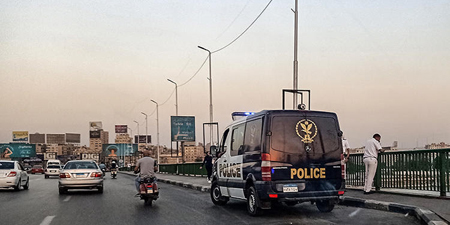Egypt arrests three journalists, blocks websites
JournalismPakistan.com | Published: 24 September 2019
Join our WhatsApp channel
In Egypt, authorities have arrested three journalists for covering protests against government corruption and calls for President el-Sisi to resign. Additionally, access to major news websites and social media platforms has been restricted across the country.Summary
WASHINGTON, D.C. — The Committee to Protect Journalists has called on the Egyptian authorities to release any journalists arrested covering anti-government protests and stop restricting access to news and social media websites.
The protests, which started on September 19 in several cities throughout Egypt, decried corruption in the nation’s army and, for the first time in years, included calls on President Abdel Fattah el-Sisi to resign, according to news reports.
On September 20, police in Cairo arrested Mohamed Ibrahim, a blogger known as Mohamed Oxygen, who live-streamed the protests and shared information about them online, according to Ibrahim’s posts on social media.
Also on September 20, police arrested Amr Hisham, a photographer for the Masrawy news website, at Giza City near Cairo, according to a report by the Arab Network for Human Rights Information, a local press freedom group.
On September 22, police in Suez arrested Sayed Abd Ellah, a freelance photographer, who streamed the protests in that city and discussed them on Al-Jazeera, according to a report by the broadcaster posted on Facebook.
Police have not disclosed the locations where Ibrahim, Hisham, or Abd Ellah are being held, according to those reports.
Beginning on September 21, internet users throughout Egypt reported difficulty accessing Facebook Messenger as well as the websites of news outlets including the BBC, Al-Jazeera, the U.S.-funded Al-Hurra news website, and the independent Egyptian news website Mada Masr, which had previously been censored but was briefly unblocked on September 20, according to reports by NetBlocks, an organization that tracks internet shutdowns, and news reports.
Makram Mohamed Ahmed, the head of Egypt’s Supreme Council for Media Regulation told government-owned outlet Ahram Online that the BBC and other news websites may have been blocked because of their “inaccurate” coverage of the protests.
“The free flow of information to the Egyptian public is vital for all citizens, including local and international journalists," said CPJ Middle East and North Africa Program Coordinator Sherif Mansour. "Egyptian authorities must release all journalists arrested for their protest coverage, unblock news websites and communication apps, and allow journalists to report freely and safely."
Police arrested Ibrahim during a regular probation check-in, he posted on Facebook. Hisham was arrested while he was covering a celebration by local soccer fans, which coincided with the protests, according to local press freedom advocate Khaled al-Balshi, who spoke with CPJ via messaging app.
Police arrested Abd Ellah moments after he appeared to discuss the Suez protests on Al-Jazeera, according to a report by the broadcaster. The journalist’s wife told Al-Jazeera in that report that police insulted her husband because of his posts on social media, kicked her and their children, and searched their house during the arrest.
On September 21, Egypt’s State Information Service issued a statement to foreign journalists in the country, saying it had “carefully monitored” their output and warning them against spreading false information. The message was later sent by email to Cairo-based foreign journalists, according to posts on Twitter by journalists who received it.
CPJ’s emails to Egypt’s Supreme Council for Media Regulation, State Information Service, and Prosecutor General’s Office about the arrests and the internet blocks did not receive any responses. — A CPJ News Alert/Photo: AFP
KEY POINTS:
- Three journalists arrested during protests in Egypt
- Government blocks access to multiple news websites
- Calls for President el-Sisi's resignation during protests
- Committee to Protect Journalists demands their release
- Internet users report issues accessing Facebook Messenger

























